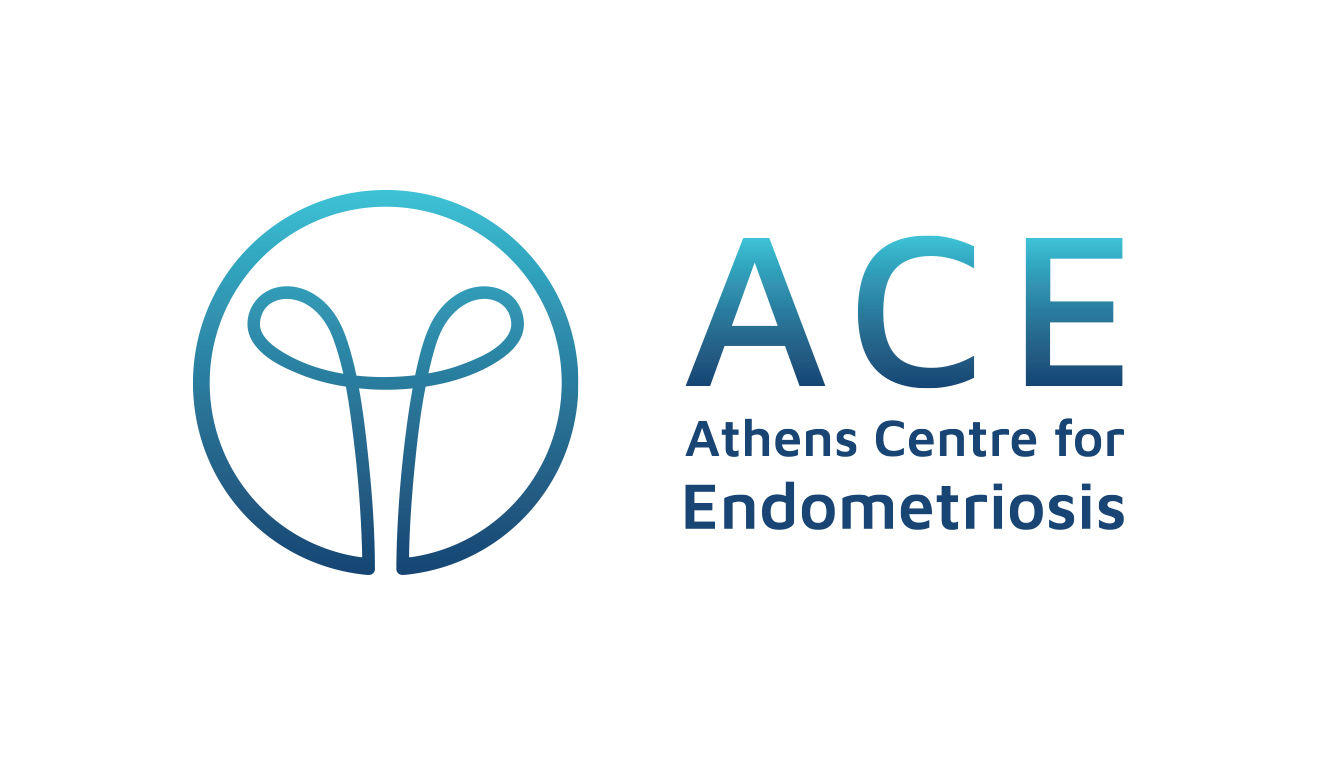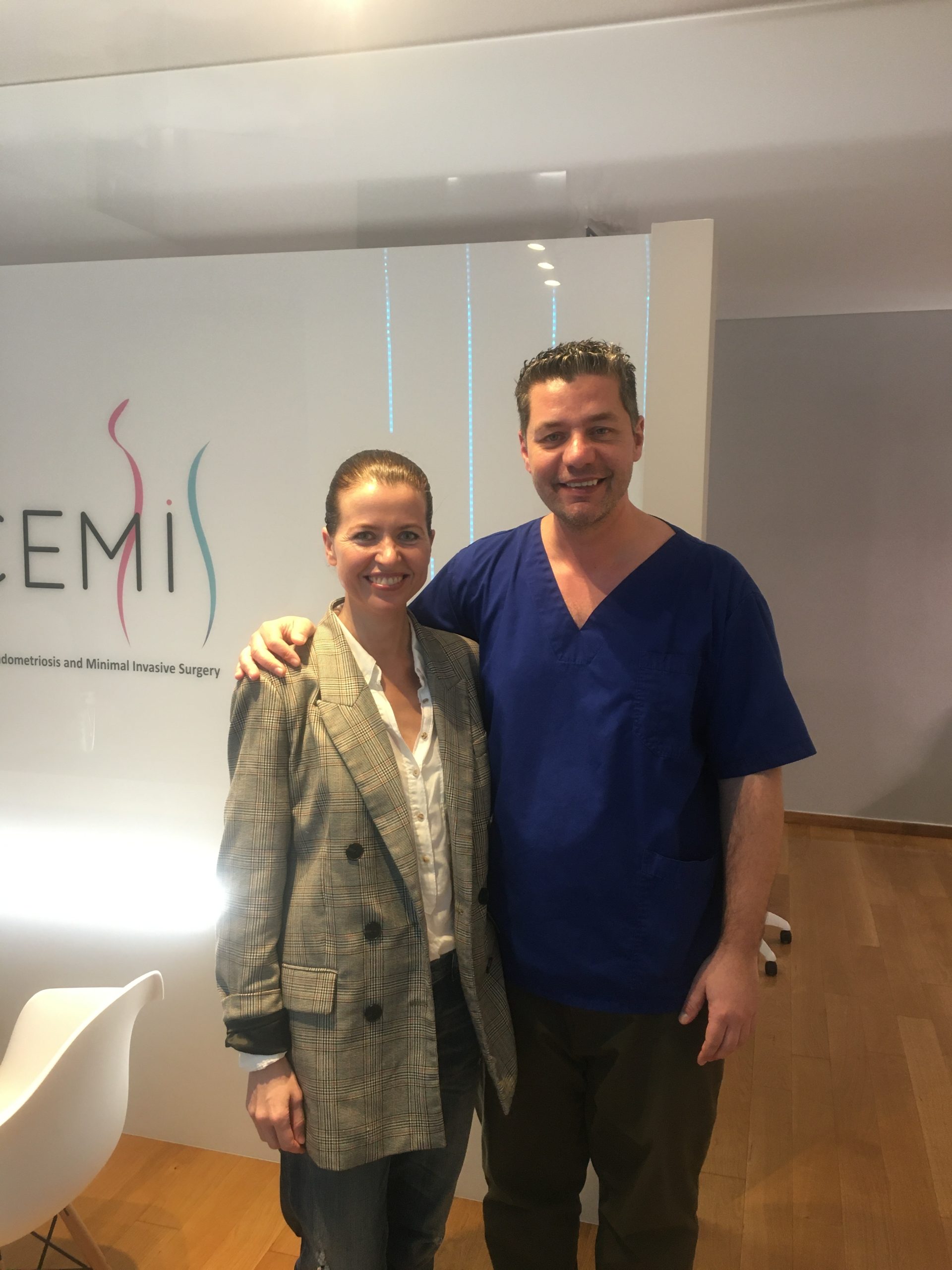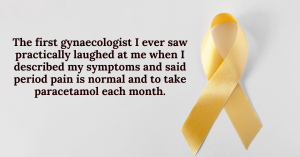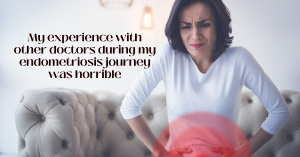For many endometriosis sufferers, symptoms begin subtly, often ignored or considered normal menstrual discomfort. Anna started her symptoms at 14. “My periods were extremely painful, heavy, and irregular. I bled for three weeks straight,” she recalls. “I would be sent home from school by my parents because I felt so sick—migraine with aura, fainting spells—always right before my period started.”
As the years passed, her condition worsened, yet she had no diagnosis, only more questions. At 16, she was put on hormonal contraception to address acne. “The pill masked my endometriosis symptoms, but it didn’t solve anything. I felt constantly exhausted, sick, and I had severe gastrointestinal problems.”
She was shouted at by a doctor when she asked to be referred to an endometriosis centre
By 2009 her symptoms took a drastic turn. It took six months for her menstrual cycle to return, and when it did, the pain intensified. Her gut issues worsened, and she thought it was due to the local water quality, not realizing her symptoms were connected.
Despite her worsening condition, her OB-GYN dismissed her concerns. “When I asked for a referral to an endometriosis treatment center in Prague, my doctor yelled at me, ‘Endometriosis doesn’t look like this.’
Eventually, after much persistence, she received a laparoscopy, which confirmed the diagnosis of endometriosis. However, the surgery— a combination of excision and ablation—left her with even worse symptoms. Her gut issues became unbearable, and she was forced to limit her diet drastically.
Poor care and dismissal led to her self-diagnosis
Despite the surgeries and treatments, she continued to be met with little support or understanding from medical professionals. Even after seeking a second opinion at another endometriosis center in Prague, she was told her pain wasn’t related to endometriosis, and the doctors were reluctant to perform further surgery.
At her breaking point, and feeling unsupported by the healthcare system, she took matters into her own hands. “I realized that excision was the only effective way to remove endometriosis. I found a Facebook group dedicated to endometriosis excision specialists worldwide, and started researching surgeons.”
Through her research, she came across glowing reviews of Dr. Dinos, a renowned excision surgeon based in Athens. “What stood out about Dr. Dinos was his credentials— a two-year internship with Dr. Shaheen Khazali in the UK—and, perhaps most importantly, his reputation as a compassionate, empathetic doctor,” she recalls.
A road to a new life begins
Choosing to travel to Athens for surgery, she met Dr. Dinos and his team. The care she received was unlike anything she had experienced before. “Dr. Dinos was extremely skilled, but also down to earth and genuinely compassionate. He put me at ease with his humor and was respectful of my wishes,” she says. “Both he and Marina, his nurse, gave me their personal numbers, and I could contact them anytime.”
Her surgery was a turning point. “Dr. Dinos removed multiple endometriosis lesions that had been left behind after my first surgery and also removed adhesions from my small bowel and sigmoid colon,” she shares. Just one week after the surgery, she began reintroducing foods into her diet that she had avoided for years due to extreme gut pain.
“I couldn’t eat complex carbohydrates before, and now I’m able to eat sweet potatoes, quinoa, and rice almost daily”. Though her diet remains sensitive, her condition has drastically improved. She gained 7 kilograms in just a few weeks, and her pelvic pain continues to decrease. “I can’t wait to see how I feel in five months”.
The key lesson learned: trust yourself
After more than a decade of suffering, the most important lesson she learned was to trust herself. “Always trust your body, your pain, and your intuition,” she says firmly. “If you don’t feel right with one doctor, find another, and another, and another if you need to. It’s your health and your life. Never let anyone dismiss your pain, no matter what credentials they hold.”
She believes the journey has been long and painful, but the decision to seek out Dr. Dinos was a turning point. “I’m so glad I made the leap and traveled to Athens. The only regret I have is that I didn’t do it sooner. I could have avoided years of unnecessary suffering.”
Looking ahead with hope
Now, with the right treatment and the right doctor, she’s finding hope again. “I still have a sensitive gut, but it’s nothing compared to before,” she says. “I feel like I have my life back—finally.”




